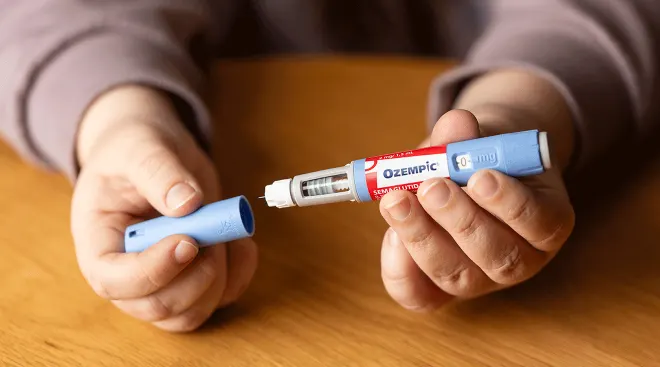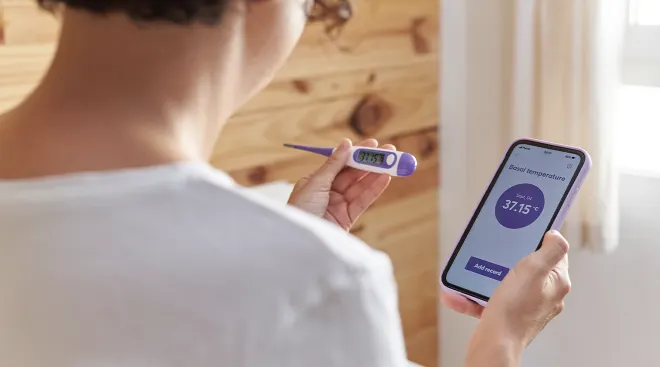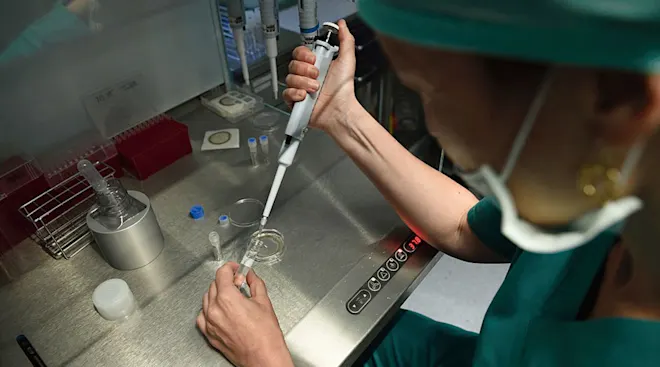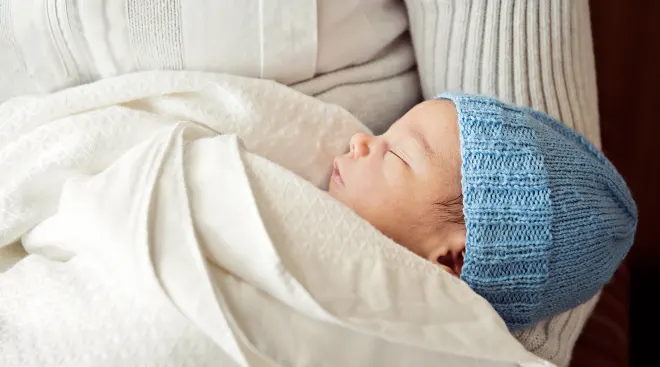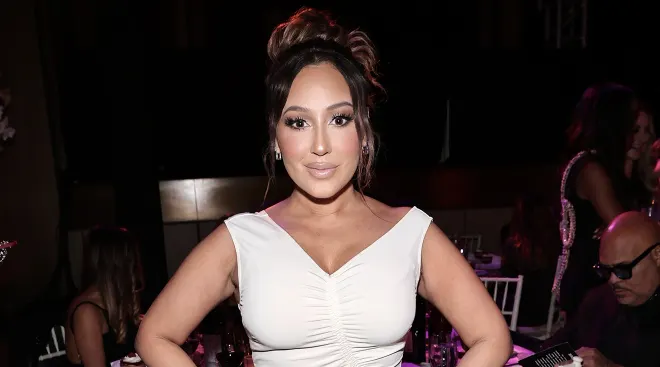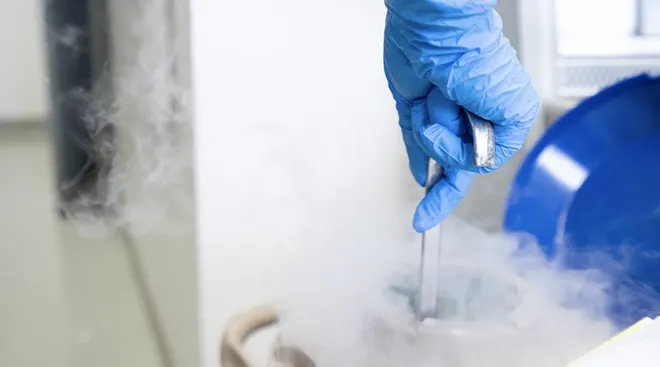One Black Mom’s Inspiring Egg Donation Story
Black women are all too familiar with judgment and bias. They face it in all facets of life—even when they’re simply seeking fair medical care. And while systemic racism is a pervasive issue in the healthcare system, the stigma that comes with seeking treatment can sometimes be felt within the Black community too—especially when it comes to fertility support. This is exactly why Brooke G., a Black mom in Stamford, Connecticut, wants to share her experience. As a mom and egg donor, she’s on a mission to help support Black families while sharing the gift of parenthood. Here, she tells us her story.
The Bump: Before you became an egg donor, what was your perception of the stigma associated with infertility in the Black community? Has your perception changed?
Brooke: Before becoming an egg donor, I did not have the knowledge I do today. I didn’t really know the depth of the stigmas associated with fertility in the Black community. I was very aware of what infertility entailed though. Now, my overall perception—having also navigated the egg donor side of things—is that there’s a distinct lack of support. The topic is simply not discussed as often as it should be.
I found out that Black women are twice as likely to have fertility challenges than their counterparts. The topic of infertility has long brought up shame in the Black community because many believe that there’s no such thing, or they aren’t aware of the resources available to them.
Medical professionals play a big part in this as well. As we know, implicit bias plays a huge role in our medical system. Although over the years there have been changes to improve culturally appropriate training for staff, many Black families are still hesitant to trust healthcare professionals.
TB: Did you personally ever experience any bias leading up to or throughout your pregnancies that really highlighted the systemic issues Black women face while seeking care?
Brooke: My second pregnancy is where the systemic issues came creeping in. I had health issues arise and had to be referred to a specialist. Preeclampsia is a big issue within the Black community and affects 60 percent more Black women than white women. I was diagnosed with this condition for the second time. When I was admitted to the Labor & Delivery unit for observation one evening, the doctor on call looked me straight in my face and said, “We should discuss terminating.” … I believe it was more so the delivery of the message from the provider that needed improvement. Communication plays a big role in how Black communities perceive how they will be cared for in a medical setting, and that is where the issue of trust has deteriorated. Sadly, my son was stillborn in December 2023.
TB: What initially prompted you to think about donating your eggs?
Brooke: When I first thought about donating my eggs, I had no clue what becoming a donor actually entailed. I believe I heard an advertisement which prompted me to want to find out more about the process. At the time, I actually worked down the hall from Illume Fertility, the clinic I ended up becoming a donor with. After gaining a bit more knowledge, I knew I wanted to become an egg donor and help other families.
TB: What was the egg donation process like? Mentally, physically?
Brooke: Becoming a donor, I knew I’d be taking on a huge responsibility. This was not a process where you could blink your eyes and it’s over. It takes time and it takes becoming more knowledgeable—really knowing your body. Between weekly blood work, ultrasounds and nightly hormone injections, it was a lot. Physically, the only factor that really slowed me down was the downtime after the egg retrieval procedure. My side effects included bloating and slight cramping. I’m not saying that’ll be the case for every donor, but it was for me. The team was very communicative and open with me throughout the entire process.
TB: How did your family and friends react to your decision to donate your eggs?
Brooke: I’m very blessed and grateful to have a supportive circle. I’m known as the “helpful” one. So everyone’s first thought was that it was interesting, and they simply wanted to know more about the process. As I continued donating, my friends became interested in becoming donors as well. I even had people reach out to me on social media to inquire about the process and ask me to share my journey. My own sister actually started the process as well!
TB: What does it mean to you to share this gift with other Black families?
Brooke: Being able to share this gift brings so much joy and light to my heart. You have no idea and don’t realize how much of an impact you can make in someone else’s life until you are in the thick of it. Each recipient family has a special piece of me, and I hope that they can hold that close to their hearts. My first and third egg donations were anonymous. My second journey involved open donation, and I had the pleasure of meeting the intended parents. I can openly say I loved every part of our conversation as we got to know one another on a deeper level. The intended parents were so appreciative of what I did. I believe having that connection is an amazing thing, and if I could do it over again and again, I surely would!
TB: What has been the most rewarding part? Most challenging?
Brooke: The most rewarding part of this process is being able to find out if/when the intended parents have begun the process and hearing that they’ve been successful. The smile on my face when I find out that intended parents are expecting a baby is unmatched! The most challenging part of the process was making sure I was properly injecting the follicle-stimulating hormones and progressing well during my monitoring morning ultrasounds and blood work.
TB: What would you say to another Black woman considering donating her eggs? What should she consider?
Brooke: I’d encourage other Black women to consider helping another family through egg donation—but be sure you do it for the right reasons. Take it to heart and recognize that it’s truly not all about the money. Also be sure you truly understand the impact you’ll be making—helping to create, build and celebrate another family. With that, be sure to do the work and research before you commit to the process. These families depend on you to see through this process. They don’t want to be let down, as they may have already experienced a lot of defeat on their family-building journey. This process is one you must really want to devote yourself to.
Black families should continue to learn to advocate for themselves. Infertility for Black families and the community is like a ‘Pandora’s Box.’ I’d encourage others to research and gain knowledge about the topic. For those considering egg donation, understand what both the donor and recipient processes entail. Know what you want in a care team, get to know them and be sure to get all of your questions answered before going forward with anything.
I’d also encourage families to make sure they have adequate support surrounding them, because this is not an easy process—emotionally, financially or mentally. If for whatever reason they cannot find support within their own circle, I’d encourage them to look for external support groups. Believe me when I say they are definitely out there!
I’m a true women’s advocate—for infertility, maternal health and NICU parents. I’ve learned so much from my journeys and am always finding ways to involve myself in these areas so I can connect with other women and families and help guide them.
Please note: The Bump and the materials and information it contains are not intended to, and do not constitute, medical or other health advice or diagnosis and should not be used as such. You should always consult with a qualified physician or health professional about your specific circumstances.
Plus, more from The Bump:
Navigate forward to interact with the calendar and select a date. Press the question mark key to get the keyboard shortcuts for changing dates.
Advertisement
Advertisement
Advertisement
Advertisement








































